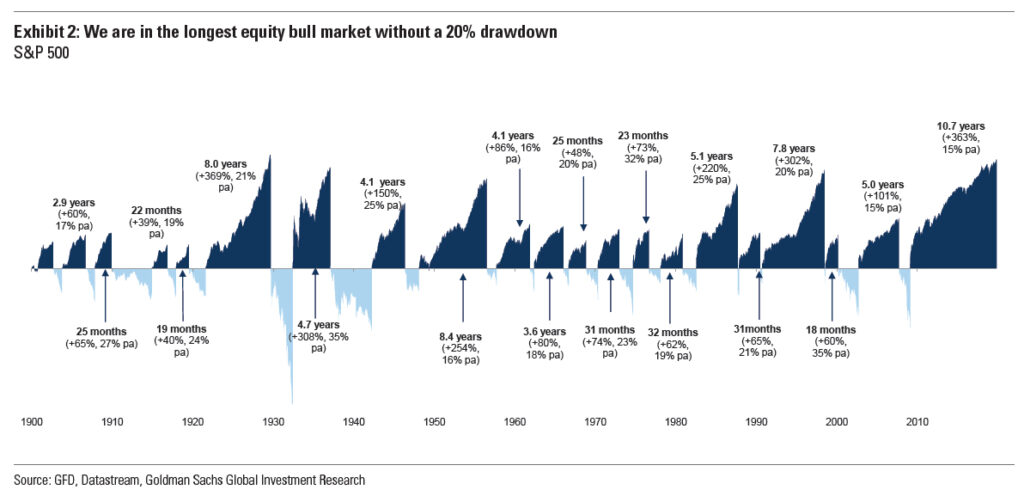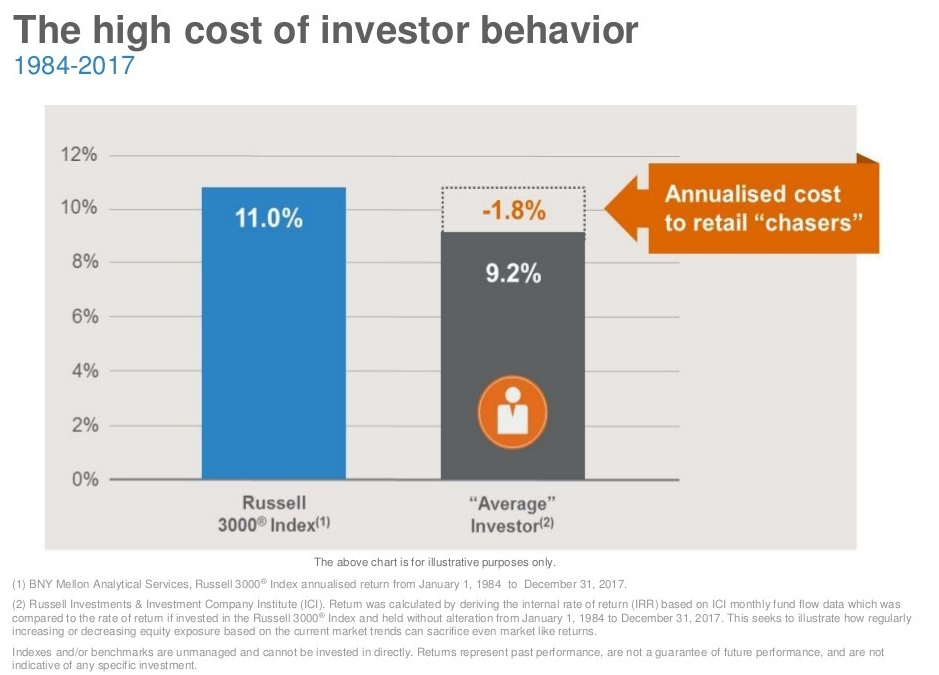Forecast: Unpredictability With a Chance of Irrational Behavior

Blueprint Investment Partners hosted a behavioral finance webinar last week with our friend Jay Mooreland, author of “The Emotional Investor.” The event motivated me to re-read his book, which I highly recommend.
It also reminded me of the investment industry’s annual prediction cycle about what to expect for the coming year and how the market will behave based upon those predictions.
Two points here:
- Analysts and economists have no idea what is going to happen
- What happens does not matter to the disciplined investor
Know What You Don’t Know
“What counts for most people in investing is not how much they know but rather how realistically they define what they don’t know.”
Warren Buffett
We are at a point in the investing cycle where a good number of self-proclaimed investors are having success trading in and out of stocks because momentum is in their favor. The volume of cocktail conversations about how much fun trading is tells me the end may be near.
For those who can make some money, congratulations.
But to those who are in the market for the first time and have never truly experienced a market correction, I say look out.
We are in the longest bull market run in HISTORY without a significant market correction. Everyone is a genius during periods like this.
History of Bull & Bear Markets Since 1900

But all the thoughtful reading and consideration they may have utilized making the investments flies out the door when volatility rears its ugly head. If you do not know how it feels to watch the market plummet without reason, then you also don’t know how you will react.
Unfortunately, the reaction is usually quite predictable, and the decisions that follow may very well be irrational.
Use Your Rational Brain
There is really no such thing as a rational brain, but the concept applies. As Jay documented very well in our behavioral finance webinar with him: Human beings react with emotion to periods of volatility or unpredictability because we use the portion of our brain that is more emotional and reactive.
Many investors constantly watch their portfolios and attempt to rationalize what is happening to the account value relative to the market news (which they are also watching). This feeds the reactive brain and often results in making decisions on an irrational basis.
There is significant research regarding the influence of investor behavior on long-term investment returns, and the data is not good. See below some research from Russell Investments, which reveals a 2% annualized variance.
Cost of Emotional Decision Making

That is a huge variance over a retirement savings period of 20+ years. The message is this: Don’t allow near-term events and news to cannibalize long-term goals and objectives.
Having A Plan is Behaviorally Friendly
At this point you might be thinking that if it was as easy as just ignoring the news, everyone would do it. But, you probably know from your own experience watching your clients that it’s not the case.
We have written much about the value of investors having a financial advisor from a behavioral finance perspective. A big benefit of having an advisor is that clients gain access to a financial behavioral coach when the inevitable market volatility makes them question their portfolio strategy.
Blueprint has also written plenty about the power of following a well-designed plan because we think that if you do not have a plan, you are planning to fail (hat tip to Ben Franklin).
We design our investment strategies with the advisor and your end clients in mind, as our systems are designed to adjust the portfolios without any human input. Said another way, we have designed emotionally intelligent strategies that will systematically manage risk based on rules written many years ago – rules that were written without emotion and with great thought and planning.
We believe the combination of a good advisor, a solid plan, and emotionally intelligent investment strategies is the perfect antidote to an unpredictable market and the potential for irrational behavior.

Tommy Mayes
Let's Talk
If any of this resonates with you
